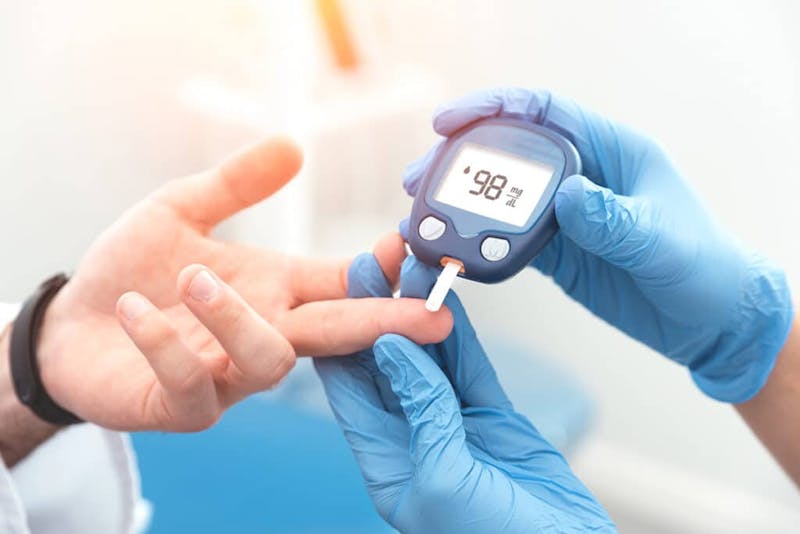
When you think of bariatric surgery (or metabolic surgery), you likely think of obesity, but these weight-loss procedures can also have a tremendous impact on metabolic diseases, such as Type 2 diabetes. Type 2 diabetes and being overweight or obese are closely linked, with an estimated 90 percent of people with the condition classified as obese or overweight. In most cases, people with a BMI of 30 or higher can achieve diabetes remission (when blood sugar levels fall to a healthy range without treatment) or significantly improve disease management through metabolic surgery.
Our experienced surgeons and team at Obesity Control Center can help you reduce the severity of Type 2 diabetes and reach and maintain a healthy size.
Research Shows Metabolic Surgery is a Successful Treatment for Type 2 Diabetes
More than 20 years of research and evidence show bariatric surgery is an effective diabetes treatment. Several randomized clinical trials show gastric bypass and other metabolic surgeries lead to complete remission or significant improvement in Type 2 diabetes within two years of the surgery for more than 90 percent of patients. Up to 50 percent of patients maintain a stable weight and glycemic (blood sugar levels) control without medication for five years after surgery. In terms of diabetes management around the globe, metabolic surgery is widely considered the superior treatment for people with a BMI of 30 or higher compared to non-surgical treatment with medication and lifestyle interventions.
Researchers don’t know why weight loss surgery leads to diabetes remission, but they theorize hormone stabilization, better insulin action and beta-cell function play a role. Diabetes remission occurs when blood sugar levels return to normal without medical intervention. Some of the most recent studies on metabolic surgery and Type 2 diabetes include:
- A 2021 study published in The Lancet found bariatric surgery to be more effective than conventional treatments for long-term control of diabetes. Researchers recommended metabolic procedures for obese patients with Type 2 diabetes for optimal disease management.
- A separate 2021 study in Diabetes Care established a link between the percentage of body weight lost after bariatric surgery and diabetes remission. Participants who lost 20 to 25 percent of their total body weight were most likely to go into remission when compared to those who lost fewer pounds, and 82.9 percent of the nearly six thousand patients involved maintained a stable weight five years later.
- A 2019 study in The Eurasian Journal of Medicine showed a similar link between weight loss and Type 2 diabetes management, with obese and non-obese patients seeing improved glycemic control after bariatric surgery.
- A 2017 study in BMC Endocrine Disorders also established metabolic surgery as a powerful tool against diabetes and disability, with better results in patients who lost at least 20 percent of excess weight and controlled diabetes management before surgery; these patients had fewer relapses and higher rates of diabetes remission.
Metabolic Surgery at Obesity Control Center (OCC)
Our surgeons at OCC perform metabolic surgery laparoscopically. These procedures can improve more than just diabetes, including other metabolic disorders, such as hypertension, obstructive sleep apnea and high cholesterol. Bariatric surgery can lengthen your lifespan and improve your quality of life. Our team at Obesity Control Center believes the only sustainable “cure” for metabolic diseases is safe and effective weight loss surgery.
Contact us today to schedule your initial consultation if you feel metabolic surgery is the answer to your struggles with obesity and Type 2 diabetes.
Share with

